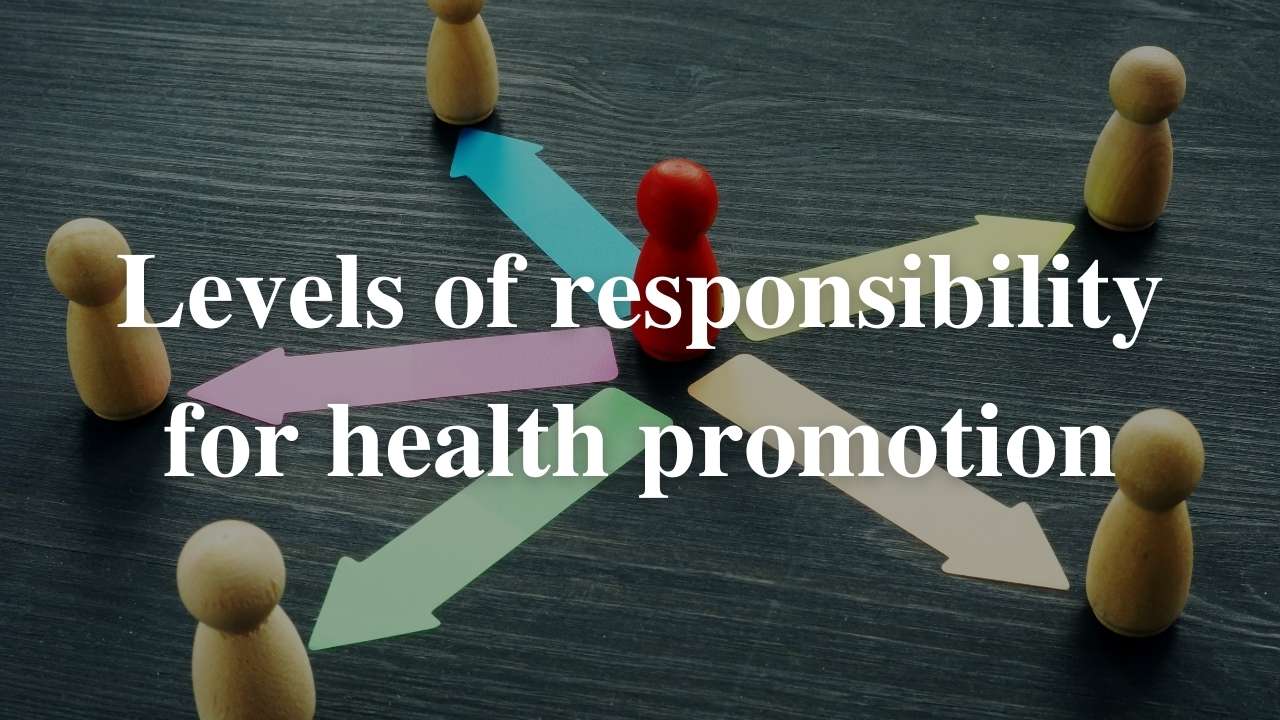Levels of responsibility for health promotion
There are various levels of responsibility for health promotion. Australian governments, communities and individuals all play a role in responsibility for health promotion. Health promotion should involve all levels of responsibility to achieve the best health results possible. It is obvious to note that individuals play an important role in developing personal skills in relation to health, and that communities are central in strengthening community action, and creating supportive environments for health. The government also is particularly vital in building healthy public policy, creating supportive environments for health and re-orienting health services. But, the government is involved in each of the action areas of the Ottawa Charter, as are communities and individuals.
Investigate the responsibilities of individuals, communities and governments under the action areas of the Ottawa Charter
Governments | Communities | Individuals | |
Build healthy public policy | All levels of government are responsible for the creation and maintenance of policies that aim to improve health. Eg) the close the gap statement of intent | Contribute towards the development of health policies and are involved in carrying the policies out. Eg) ATSI community involvement in the development and implementation of ‘close the gap’ | Act in accord with the policies delivered. Eg) not smoking in public areas |
Create supportive environments for health | Responsible for the planning, implementation and management of infrastructure. Eg) location of hospitals, parks, community centres. Council approve developments, remove waste etc | Help maintain healthy environments and promote healthy behaviours. Eg) clean up Australia day, fun runs, maintain parks, fields and ovals, YMCA gyms etc | Make better health choices using and maintaining the environment. Eg) putting rubbish in the bins provided. |
Strengthen community action for health | Engage with community groups in the creation of policies. Eg) allowing communities to provide feedback on policies before signing them | Contribute to and take ownership of policies being empowered to act and implement them. Eg) Aboriginal community controlled health services | Promote community activities that promote health, be involved in community actions. Eg) promote fun runs, engage in community discussions around health |
Develop personal skills | Develop policies and provide funding towards developing personal skills. Eg) K-10 PDHPE compulsory, advertisements (2 & 5) etc | Run education and training programs to develop personal skills in relation to health. Eg) community health centre education (pre-natal classes, brochures etc) school education system, Quit helpline etc | Seek to develop their own skills in relation to health. Enabled to take charge of their own health Eg) research behavioural choices for health, act on advice from GPs and health practitioners, enrol in community programs etc |
Re-orient health services | Fund, research and create policies around prevention and health promotion. Looking at all the determinants of health and not just curative services. Eg) tv advertisements, training of primary health sector to promote health as well as cure. | Conduct research, and be involved in the promotion of health. Eg) cancer council conducts research around cancer, but also promotes better health choices in relation to the prevention of cancer. | Seek to make healthy life choices, and help others to do the same, including participation in health promotion. Eg) participating in jump-rope-for-heart or getting advice from a GP on quitting smoking |

